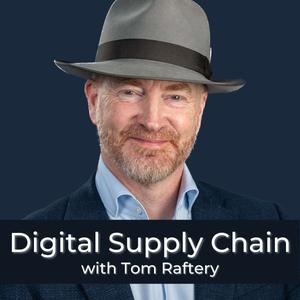
Digital Supply Chain
Tom Raftery
The Digital Supply Chain podcast is a show hosted by Tom Raftery, discussing thought leadership, trends, best practices, and the latest innovations in delivering a resilient, sustainable supply chain. The show publishes a new episode every Monday and Friday, and features interviews with luminaries in the world of supply chain and Industry 4.0. All aspects of supply chains, and how to optimise them are discussed - everything from the design, planning, manufacturing, production, delivery, all the way through to product operation and service.
- 42 minutes 2 secondsThe Role of Data in Building Sustainable and Efficient Supply Chains
In this episode, I sit down with Bailey Robin, CEO and co-founder of Matium, to explore how data-driven decision-making can transform supply chains into more efficient and sustainable systems. Bailey shares the fascinating backstory of Matium, a platform focused on connecting supply and demand in material markets to reduce cost, carbon, and time per unit of consumer demand. His insights are as technical as they are practical, making this a must-listen for anyone tackling sustainability in supply chains.
We discuss some of the biggest inefficiencies in today’s supply chains, like shipping materials vast distances unnecessarily, and how addressing these inefficiencies can significantly lower carbon emissions. Bailey explains how Matium applies lean manufacturing principles and process mapping to identify value-added versus non-value-added activities. The goal? To minimise waste and maximise efficiency while making sustainability economically viable.
One of the standout moments in our chat is Bailey’s explanation of how future supply chains could evolve—featuring decentralised, micro-manufacturing hubs powered by low-cost, renewable energy. He also dives into the role automation and AI will play in shaping supply chains, not just in streamlining operations but also in driving localised production.
Bailey highlights the importance of creating systems that align sustainabi
Elevate your brand with the ‘Sustainable Supply Chain’ podcast, the voice of supply chain sustainability.
Last year, this podcast's episodes were downloaded over 113,000 times by senior supply chain executives around the world.
Become a sponsor. Lead the conversation.
Contact me for sponsorship opportunities and turn downloads into dialogues.
Act today. Influence the future.
Boomers, Bucks, and Bling PodcastUnlock the secrets to financial success with the Boomers, Bucks, and Bling...
Listen on: Apple Podcasts Spotify
Podcast supporters
I'd like to sincerely thank this podcast's generous supporters:- Lorcan Sheehan
- Olivier Brusle
- Alicia Farag
- Kieran Ognev
And remember you too can Support the Podcast - it is really easy and hugely important as it will enable me to continue to create more excellent episodes like this one.
Podcast Sponsorship Opportunities:
If you/your organisation is interested in sponsoring this podcast - I have several options available. Let's talk!
Finally
If you have any comments/suggestions or questions for the podcast - feel free to just send me a direct message on LinkedIn, or send me a text message using this link.
If you liked this show, please don't forget to rate and/or review it. It makes a big difference to help new people discover it.
Thanks for listening.27 January 2025, 6:00 am - 42 minutes 19 secondsDecoding Carbon Accounting: Making Supply Chains Sustainable with George Wade"
In this episode of The Sustainable Supply Chain Podcast, I sit down with George Wade, co-founder of Zevero, a global leader in carbon accounting solutions for businesses with complex supply chains. George shares his fascinating journey from waste management to tackling carbon emissions, offering a unique lens on the importance of uncovering “invisible emissions” within organisations.
We delve into how Zevero helps businesses measure, reduce, and report their emissions, with a particular focus on Scope 3 emissions – often the most challenging yet impactful to address. George outlines the practical ways businesses can collect and utilise emissions data, from integrating with ERP systems to understanding supplier data, and discusses how these insights are driving real-world changes.
This episode is packed with actionable takeaways, including:
- How data transparency empowers companies to make smarter supply chain decisions, such as reducing transport emissions or choosing lower-impact materials.
- Real-world success stories, like how a UK drinks brand helped customers reduce their carbon footprint by 67%, benefiting both the environment and its retail partnerships.
- The role of emission intensity metrics for fast-growing companies, and why a one-size-fits-all approach to sustainability doesn’t work.
George also shares his
Elevate your brand with the ‘Sustainable Supply Chain’ podcast, the voice of supply chain sustainability.
Last year, this podcast's episodes were downloaded over 113,000 times by senior supply chain executives around the world.
Become a sponsor. Lead the conversation.
Contact me for sponsorship opportunities and turn downloads into dialogues.
Act today. Influence the future.
Boomers, Bucks, and Bling PodcastUnlock the secrets to financial success with the Boomers, Bucks, and Bling...
Listen on: Apple Podcasts Spotify
Podcast supporters
I'd like to sincerely thank this podcast's generous supporters:- Lorcan Sheehan
- Olivier Brusle
- Alicia Farag
- Kieran Ognev
And remember you too can Support the Podcast - it is really easy and hugely important as it will enable me to continue to create more excellent episodes like this one.
Podcast Sponsorship Opportunities:
If you/your organisation is interested in sponsoring this podcast - I have several options available. Let's talk!
Finally
If you have any comments/suggestions or questions for the podcast - feel free to just send me a direct message on LinkedIn, or send me a text message using this link.
If you liked this show, please don't forget to rate and/or review it. It makes a big difference to help new people discover it.
Thanks for listening.20 January 2025, 6:00 am - 33 minutes 31 secondsHow Digital Product Management Drives Sustainable Business Growth
In this episode, I’m joined by Kristin Naragon, Chief Strategy Officer at Akeneo, to explore how businesses can strategically merge digital transformation with sustainability. As regulations tighten and consumer demand for transparency grows, companies are under increasing pressure to adapt. Kristin breaks down how effective product information management (PIM) can not only streamline operations but also support compliance with emerging sustainability standards.
We dive into:
- Why sustainability is no longer optional, with 90% of S&P 500 companies now publishing CSR reports compared to just 20% a decade ago.
- The upcoming EU Digital Product Passport and how it will require detailed product data, from material sourcing to carbon footprints, for every product sold in the EU.
- How BIC (the pen company) transformed its digital catalogue, elevating sustainable products (just 10% of its range) to drive a staggering 60% of revenue.
- The critical role of integrating sustainability initiatives with digital strategies to avoid duplicating efforts and to drive measurable business growth.
Kristin also shares practical steps for getting started—bringing key stakeholders together, leveraging technology to manage complex data, and embedding sustainability into product information.
If you're navigating the challenges of compliance, digital transformation, or sustainability, this episode offers actionable insights to future-proof your supply chain.
🔗 Learn more about Akeneo at akeneo.com
💼 Connect with Kristin Naragon on LinkedInListen now and discover how to turn regulatory challenges into strategic advantages!
#Sustainability #SupplyChain #Di
Elevate your brand with the ‘Sustainable Supply Chain’ podcast, the voice of supply chain sustainability.
Last year, this podcast's episodes were downloaded over 113,000 times by senior supply chain executives around the world.
Become a sponsor. Lead the conversation.
Contact me for sponsorship opportunities and turn downloads into dialogues.
Act today. Influence the future.
Podcast supporters
I'd like to sincerely thank this podcast's generous supporters:- Lorcan Sheehan
- Olivier Brusle
- Alicia Farag
- Kieran Ognev
And remember you too can Support the Podcast - it is really easy and hugely important as it will enable me to continue to create more excellent episodes like this one.
Podcast Sponsorship Opportunities:
If you/your organisation is interested in sponsoring this podcast - I have several options available. Let's talk!
Finally
If you have any comments/suggestions or questions for the podcast - feel free to just send me a direct message on LinkedIn, or send me a text message using this link.
If you liked this show, please don't forget to rate and/or review it. It makes a big difference to help new people discover it.
Thanks for listening.13 January 2025, 6:00 am - 43 minutes 16 secondsTackling Scope 3 Emissions: AI, Data, and the Future of Sustainable Supply Chains
Welcome to 2025, and to the 49th episode of the Sustainable Supply Chain podcast, my first for the year!
In this episode, I had the pleasure of chatting with Jenna Fink, Principal of Research at Zero100, about the evolving intersection of sustainability and supply chains. With her diverse experience—from Amazon’s high-speed operations to Bayer’s more structured approach—Jenna offers fascinating insights into what drives sustainability initiatives and how businesses can balance priorities.
We delved into some pressing questions: Where is the push for sustainability coming from—employees, customers, investors, or regulators? And how do companies ensure that sustainability isn’t just an added burden, but rather an opportunity to enhance efficiency and resilience?
One major takeaway was the significance of Scope 3 emissions reporting, often seen as the most challenging but also the most transformative for organisations. Jenna shared practical strategies to get started—leveraging existing data, collaborating with suppliers, and finding the internal champions who can drive change.
We also explored the role of AI in reducing waste and improving efficiency. Jenna highlighted projects like PepsiCo’s Perfect Sorting Consortium, showing how AI tools can enable smarter, more sustainable decision-making.
Finally, we touc
Elevate your brand with the ‘Sustainable Supply Chain’ podcast, the voice of supply chain sustainability.
Last year, this podcast's episodes were downloaded over 113,000 times by senior supply chain executives around the world.
Become a sponsor. Lead the conversation.
Contact me for sponsorship opportunities and turn downloads into dialogues.
Act today. Influence the future.
Boomers, Bucks, and Bling PodcastUnlock the secrets to financial success with the Boomers, Bucks, and Bling...
Listen on: Apple Podcasts Spotify
Podcast supporters
I'd like to sincerely thank this podcast's generous supporters:- Lorcan Sheehan
- Olivier Brusle
- Alicia Farag
- Kieran Ognev
And remember you too can Support the Podcast - it is really easy and hugely important as it will enable me to continue to create more excellent episodes like this one.
Podcast Sponsorship Opportunities:
If you/your organisation is interested in sponsoring this podcast - I have several options available. Let's talk!
Finally
If you have any comments/suggestions or questions for the podcast - feel free to just send me a direct message on LinkedIn, or send me a text message using this link.
If you liked this show, please don't forget to rate and/or review it. It makes a big difference to help new people discover it.
Thanks for listening.6 January 2025, 6:00 am - 22 minutes 9 secondsHow 2024 Redefined Sustainable Supply Chains: Key Insights and Trends
Hi, Tom Raftery here! In this special episode of the Sustainable Supply Chain podcast, I look back on 2024's 47 episodes of the podcast. Fittingly given the rise in popularity of AI, I do this through the lens of Google Notebook's AI-generated insights. So in this 2024 review, we’re unpacking three major themes from the year:
- AI’s Role in Sustainability: From satellite monitoring of deforestation to predictive maintenance that cuts waste and improves safety, AI has revolutionised how companies approach sustainability.
- Collaboration is Key: Sustainability thrives on partnerships, whether it’s businesses working with suppliers to tackle Scope 3 emissions or startups collaborating with corporates for fresh solutions. It’s all about breaking down silos and raising the bar together.
- Circular Economy in Action: Moving from “take, make, waste” to “reduce, reuse, recycle,” businesses are finding innovative ways to repurpose waste and rethink design for lasting impact.
2024 proved sustainability isn’t optional—it’s essential for resilience, growth, and survival. I’ll be back on 6th January with exciting new episodes. Happy holidays and here’s to a sustainable 2025!
What’s Next?
Catch upcoming episodes with Jenna Fink and Kristin Naragon. Like, share, and subscribe to keep the momentum going!
Podcast supporters
I'd like to sincerely thank this podcast's generous supporters:- Lorcan Sheehan
- Olivier Brusle
- Alicia Farag
- Kieran Ognev
And remember you too can Support the Podcast - it is really easy and hugely important as it will enable me to continue to create more excellent episodes like this one.
Podcast Sponsorship Opportunities:
If you/your organisation is interested in sponsoring this podcast - I have several options available. Let's talk!
Finally
If you have any comments/suggestions or questions for the podcast - feel free to just send me a direct message on LinkedIn, or send me a text message using this link.
If you liked this show, please don't forget to rate and/or review it. It makes a big difference to help new people discover it.
Thanks for listening.23 December 2024, 6:00 am - 38 minutes 43 secondsHarnessing AI, Data, and Technology for Smarter, Sustainable Supply Chains
In this episode of the Sustainable Supply Chain podcast, I sit down with Kayla Broussard, CTO for the Consumer and Travel Market at Kyndryl, to explore how data and technology are reshaping supply chains to be more resilient, efficient, and sustainable.
Kayla walks us through some of the biggest challenges in supply chains today, from waste generated by defective products and discarded materials to fragile global networks vulnerable to disruption. She explains how technologies like AI, machine learning, blockchain, and digital twins are being deployed to address these challenges, creating smarter, more connected supply chains.
We dive into real-world examples from industry leaders like Walmart, Unilever, Tesla, and Procter & Gamble, examining how data-powered strategies are reducing food waste, optimising transport routes, and improving resource efficiency. Kayla also shares insights into the often-overlooked environmental cost of managing data itself and offers practical tips for companies to reduce their digital carbon footprint.
One standout theme in our conversation is the concept of treating data as a product. Kayla discusses how this approach enables companies to foster better collaboration and drive innovation by making data more accessible and actionable across their supply chain ecosystems.
We also touch on emerging technologies l
Elevate your brand with the ‘Sustainable Supply Chain’ podcast, the voice of supply chain sustainability.
Last year, this podcast's episodes were downloaded over 113,000 times by senior supply chain executives around the world.
Become a sponsor. Lead the conversation.
Contact me for sponsorship opportunities and turn downloads into dialogues.
Act today. Influence the future.
Boomers, Bucks, and Bling PodcastUnlock the secrets to financial success with the Boomers, Bucks, and Bling...
Listen on: Apple Podcasts Spotify
Podcast supporters
I'd like to sincerely thank this podcast's generous supporters:- Lorcan Sheehan
- Olivier Brusle
- Alicia Farag
- Kieran Ognev
And remember you too can Support the Podcast - it is really easy and hugely important as it will enable me to continue to create more excellent episodes like this one.
Podcast Sponsorship Opportunities:
If you/your organisation is interested in sponsoring this podcast - I have several options available. Let's talk!
Finally
If you have any comments/suggestions or questions for the podcast - feel free to just send me a direct message on LinkedIn, or send me a text message using this link.
If you liked this show, please don't forget to rate and/or review it. It makes a big difference to help new people discover it.
Thanks for listening.16 December 2024, 6:00 am - 49 minutes 43 secondsHow AI and Historical Data Are Transforming Sustainable Manufacturing
In this episode of the Sustainable Supply Chain podcast, I’m joined by Aaron Lober, Vice President of Marketing at CADDi, to explore how data-driven manufacturing is reshaping the industry. Manufacturing, as we know, is the backbone of our global economy, but it’s grappling with challenges like rising costs, a retiring workforce, and the urgent need for sustainability. Aaron shares compelling insights into how leveraging historical data can help address these issues while improving efficiency and profitability.
We dive into CADDi’s innovative approach to manufacturing intelligence, which equips organisations with the tools to make smarter, faster decisions. By centralising decades of historical parts and production data, manufacturers can reduce procurement costs, optimise supply chains, and tackle the perennial question: Have we built this before?
Aaron also touches on the value of institutional knowledge as manufacturers face a wave of retirements in the coming years. We discuss practical strategies for preserving that knowledge through data systems, ensuring a seamless transfer to the next generation of workers.
Sustainability is, of course, a focal point. We talk about how manufacturers can integrate sustainable practices without sacrificing efficiency or profitability, from reshoring suppliers to using AI for carbon footprint analysis.
An
Elevate your brand with the ‘Sustainable Supply Chain’ podcast, the voice of supply chain sustainability.
Last year, this podcast's episodes were downloaded over 113,000 times by senior supply chain executives around the world.
Become a sponsor. Lead the conversation.
Contact me for sponsorship opportunities and turn downloads into dialogues.
Act today. Influence the future.
Boomers, Bucks, and Bling PodcastUnlock the secrets to financial success with the Boomers, Bucks, and Bling...
Listen on: Apple Podcasts Spotify
Podcast supporters
I'd like to sincerely thank this podcast's generous supporters:- Lorcan Sheehan
- Olivier Brusle
- Alicia Farag
- Kieran Ognev
And remember you too can Support the Podcast - it is really easy and hugely important as it will enable me to continue to create more excellent episodes like this one.
Podcast Sponsorship Opportunities:
If you/your organisation is interested in sponsoring this podcast - I have several options available. Let's talk!
Finally
If you have any comments/suggestions or questions for the podcast - feel free to just send me a direct message on LinkedIn, or send me a text message using this link.
If you liked this show, please don't forget to rate and/or review it. It makes a big difference to help new people discover it.
Thanks for listening.9 December 2024, 6:00 am - 33 minutes 16 secondsAI-Driven Circularity: Turning Industrial Byproducts into Revenue Streams
In this episode of the Sustainable Supply Chain Podcast, I sit down with Jon Goriup, Co-Founder and CEO of VCG AI, to explore how artificial intelligence is reshaping the way industries think about waste and sustainability. Jon and his team are pioneering an innovative approach to transforming industrial byproducts into valuable resources, helping companies cut emissions and uncover new revenue streams in the process.
We delve into the mechanics of circular value chains, where waste becomes an asset rather than a liability. Jon explains how VCG AI uses cutting-edge data analytics and AI to map material flows, evaluate waste streams, and recommend optimal upcycling processes—saving companies time and resources while delivering tangible economic and environmental benefits.
Some of the key highlights include:
- The shift in mindset as companies realise the economic potential of waste and embrace circular supply chains.
- Real-world examples, such as transforming spent grains and yeast from breweries into high-value food ingredients.
- How AI accelerates decision-making and implementation, allowing firms to move from analysis to action quickly and effectively.
- The challenges companies face, from navigating complex regulations to addressing non-core business activities, and how these can be mitigated.
- The role of collaboration across supply chains and how VCG AI is enabling large-scale circular transformations, even at the regional level.
Jon also shares how industries and governments can work together to accelerate this transition, the KPIs that matter most, and the broader implications for sustainability globally.
If you’re curious about how technology is reshaping sustainability or looking to gain practical insights i
Elevate your brand with the ‘Sustainable Supply Chain’ podcast, the voice of supply chain sustainability.
Last year, this podcast's episodes were downloaded over 113,000 times by senior supply chain executives around the world.
Become a sponsor. Lead the conversation.
Contact me for sponsorship opportunities and turn downloads into dialogues.
Act today. Influence the future.
Podcast supporters
I'd like to sincerely thank this podcast's generous supporters:- Lorcan Sheehan
- Olivier Brusle
- Alicia Farag
- Kieran Ognev
And remember you too can Support the Podcast - it is really easy and hugely important as it will enable me to continue to create more excellent episodes like this one.
Podcast Sponsorship Opportunities:
If you/your organisation is interested in sponsoring this podcast - I have several options available. Let's talk!
Finally
If you have any comments/suggestions or questions for the podcast - feel free to just send me a direct message on LinkedIn, or send me a text message using this link.
If you liked this show, please don't forget to rate and/or review it. It makes a big difference to help new people discover it.
Thanks for listening.2 December 2024, 6:00 am - 45 minutes 7 secondsThe Circular Economy in Action: Kenny McGee on Redistributing Excess Components
In this episode, I sit down with Kenny McGee, CEO and founder of Component Sense, to explore how his company is driving sustainability in the electronics industry. Kenny shares the story behind Component Sense’s origins—born out of a pressing need to manage surplus electronic components—and how it has grown into a leader in redistributing excess inventory.
We dig into some hard truths about waste in the electronics supply chain. Did you know that millions of brand-new components are scrapped every year simply because they’re surplus to requirements? Kenny explains how Component Sense prevents this waste by redistributing unused, traceable parts to businesses that need them, ensuring valuable resources don’t end up in landfills.
From navigating financial crises and COVID-19 to tackling Brexit’s logistical headaches, Kenny’s journey highlights the challenges of running a purpose-driven business. He also discusses how his team has developed innovative tools, such as their InPlant system, to integrate seamlessly into clients' supply chains, making redistribution both easy and profitable.
We also touch on broader industry challenges, including the rise of counterfeit components, the regulatory gaps around circularity, and the urgent need for global, not just local, sustainability efforts. Kenny makes a compelling case for prioritising reuse over waste, urging bu
Elevate your brand with the ‘Sustainable Supply Chain’ podcast, the voice of supply chain sustainability.
Last year, this podcast's episodes were downloaded over 113,000 times by senior supply chain executives around the world.
Become a sponsor. Lead the conversation.
Contact me for sponsorship opportunities and turn downloads into dialogues.
Act today. Influence the future.
Boomers, Bucks, and Bling PodcastUnlock the secrets to financial success with the Boomers, Bucks, and Bling...
Listen on: Apple Podcasts Spotify
Podcast supporters
I'd like to sincerely thank this podcast's generous supporters:- Lorcan Sheehan
- Olivier Brusle
- Alicia Farag
- Kieran Ognev
And remember you too can Support the Podcast - it is really easy and hugely important as it will enable me to continue to create more excellent episodes like this one.
Podcast Sponsorship Opportunities:
If you/your organisation is interested in sponsoring this podcast - I have several options available. Let's talk!
Finally
If you have any comments/suggestions or questions for the podcast - feel free to just send me a direct message on LinkedIn, or send me a text message using this link.
If you liked this show, please don't forget to rate and/or review it. It makes a big difference to help new people discover it.
Thanks for listening.25 November 2024, 6:00 am - 38 minutes 38 secondsHow AI and Consolidated Shipping Are Transforming Logistics Sustainability
In this episode of The Sustainable Supply Chain Podcast, I sit down with Thom Campbell, Co-Founder and Chief Strategy Officer of Capacity LLC, a leading third-party logistics and fulfilment company. Thom shares fascinating insights from his 25 years in the industry, where sustainability has evolved from an afterthought to a core priority.
We discuss how Capacity has woven sustainability into its operations, from banning styrofoam peanuts over two decades ago to installing solar panels across their warehouses. Thom dives into consolidated shipping—a practice that not only cuts emissions but also optimises costs for retailers and brands alike.
The conversation also explores the practicalities of energy-efficient facilities, including achieving LEED and ENERGY STAR certifications, and the role of AI and robotics in logistics. Thom outlines how AI has transformed their processes, from improving order batching to speeding up robotic learning curves, with significant implications for sustainability.
We also address the regulatory landscape, including California’s WARE programme, and how businesses can adapt without breaking the bank. Thom candidly shares the challenges of aligning with client sustainability goals, particularly for influencer-driven brands where packaging and presentation are under constant scrutiny.
Finally, Thom offers his take on
Elevate your brand with the ‘Sustainable Supply Chain’ podcast, the voice of supply chain sustainability.
Last year, this podcast's episodes were downloaded over 113,000 times by senior supply chain executives around the world.
Become a sponsor. Lead the conversation.
Contact me for sponsorship opportunities and turn downloads into dialogues.
Act today. Influence the future.
Boomers, Bucks, and Bling PodcastUnlock the secrets to financial success with the Boomers, Bucks, and Bling...
Listen on: Apple Podcasts Spotify
Podcast supporters
I'd like to sincerely thank this podcast's generous supporters:- Lorcan Sheehan
- Olivier Brusle
- Alicia Farag
- Kieran Ognev
And remember you too can Support the Podcast - it is really easy and hugely important as it will enable me to continue to create more excellent episodes like this one.
Podcast Sponsorship Opportunities:
If you/your organisation is interested in sponsoring this podcast - I have several options available. Let's talk!
Finally
If you have any comments/suggestions or questions for the podcast - feel free to just send me a direct message on LinkedIn, or send me a text message using this link.
If you liked this show, please don't forget to rate and/or review it. It makes a big difference to help new people discover it.
Thanks for listening.18 November 2024, 6:00 am - 43 minutes 22 secondsAI and Data: The New Powerhouses of Sustainable Supply Chains with Ganesh Gandhieswaran
In this episode of the Sustainable Supply Chain podcast, I sit down with Ganesh Gandhieswaran, Co-Founder and CEO of ConverSight, to dive into how data and AI are transforming sustainable supply chains. Ganesh’s extensive background in data analytics for manufacturing and supply chains sets the stage as we discuss how AI and data integration can offer deep insights for companies aiming to meet sustainability targets.
Ganesh explains how today’s data-rich environment provides new opportunities for companies to make informed decisions about carbon emissions, resource usage, and overall environmental impact. Yet, he’s quick to highlight the challenges – from integrating data across global suppliers to ensuring data quality and consistency. With AI and predictive analytics, Ganesh demonstrates how companies can not only monitor but actively manage sustainability efforts, predicting issues before they arise and adjusting strategies on the go.
We also touch on the importance of data visualisation tools in making sense of complex sustainability metrics, enabling leaders to see patterns and act quickly. From predictive maintenance to the transition toward a circular economy, Ganesh’s insights show that technology can genuinely underpin a greener supply chain – but only if organisations take a structured, measurable approach. It’s an episode filled with actionable takeaways for any company looking to leverage data for a sustainable future.
Have a listen,
Elevate your brand with the ‘Sustainable Supply Chain’ podcast, the voice of supply chain sustainability.
Last year, this podcast's episodes were downloaded over 113,000 times by senior supply chain executives around the world.
Become a sponsor. Lead the conversation.
Contact me for sponsorship opportunities and turn downloads into dialogues.
Act today. Influence the future.
Boomers, Bucks, and Bling PodcastUnlock the secrets to financial success with the Boomers, Bucks, and Bling...
Listen on: Apple Podcasts Spotify
Podcast supporters
I'd like to sincerely thank this podcast's generous supporters:- Lorcan Sheehan
- Olivier Brusle
- Alicia Farag
- Kieran Ognev
And remember you too can Support the Podcast - it is really easy and hugely important as it will enable me to continue to create more excellent episodes like this one.
Podcast Sponsorship Opportunities:
If you/your organisation is interested in sponsoring this podcast - I have several options available. Let's talk!
Finally
If you have any comments/suggestions or questions for the podcast - feel free to just send me a direct message on LinkedIn, or send me a text message using this link.
If you liked this show, please don't forget to rate and/or review it. It makes a big difference to help new people discover it.
Thanks for listening.11 November 2024, 6:00 am - More Episodes? Get the App
Your feedback is valuable to us. Should you encounter any bugs, glitches, lack of functionality or other problems, please email us on [email protected] or join Moon.FM Telegram Group where you can talk directly to the dev team who are happy to answer any queries.
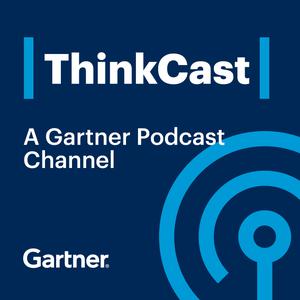 Gartner ThinkCast
Gartner ThinkCast
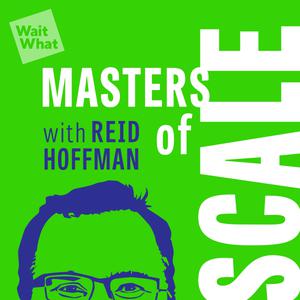 Masters of Scale
Masters of Scale
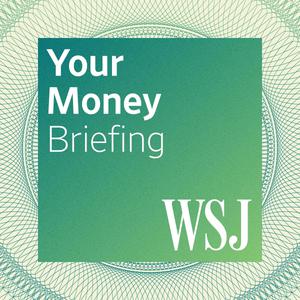 WSJ Your Money Briefing
WSJ Your Money Briefing
 The Gartner Supply Chain Podcast
The Gartner Supply Chain Podcast
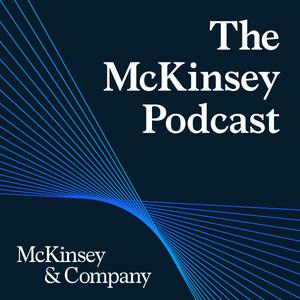 The McKinsey Podcast
The McKinsey Podcast
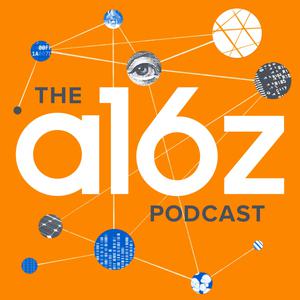 a16z Podcast
a16z Podcast